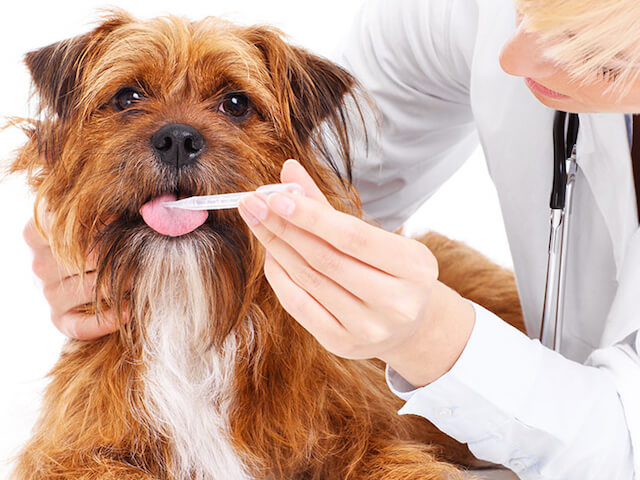5 Common Dog Health Problems
The most common dog health problems are ailments that can affect any dog, of any breed. They affect both males and females, spayed/neutered and intact dogs. Fortunately, in most cases these problems can be treated, though you may need to see your veterinarian if the problem is severe.

1. Ear infections. One of the most common of all dog health problems is ear infections. Ear infections can occur if your dog has allergies, or they can be due to bacteria growing in the ear, or due to yeast growing in the ear.
Symptoms of an ear infection include:
• Bad odor from the ear
• Discharge from the ear (bloody, brown, or yellow)
• Loss of balance
• Redness in the ear
• Scratching the ear
• Shaking or tilting the head
• Swollen ear
If your dog has an ear infection then it is not something you can treat at home. You need to take your dog to the vet. Your vet can clean the ear and provide you with some medicated drops so you can continue to place them in the ear for the next few days. Ear infections can be very serious. Left untreated they can lead to loss of hearing and surgery may be required to repair the ear, so do take your dog to the vet if your dog has an infection.
The best way to avoid ear infections is to clean your dog’s ears regularly.
2. Parasites. Parasites are one of the most common health problems in dogs. They can include all kinds of internal worms such as roundworms, whipworms, hookworms, and tapeworms. They also include heartworms. Some infestations, left untreated, can be fatal, especially in puppies. Untreated heartworms can also be fatal.
Symptoms of internal parasites include:
• Bloody diarrhea
• Change in appetite
• Diarrhea
• Dry, brittle coat
• Poor, unthrifty appearance
• Scooting on the floor
• Weight loss
Your vet can treat your dog for worms. Most heartworm medications also contain medication which kills most internal parasites. If you suspect that your dog has worms (some of them leave evidence when your dog has a bowel movement or if he vomits), talk to your vet about the best steps to take for your dog and make sure that your dog is on heartworm preventive.
3. Fleas. Fleas are a well-known problem for dogs. Just one flea, laying eggs, can soon make your home a disaster area for you and your dog. Symptoms that your dog might have fleas include:
• Allergic dermatitis (flea allergy)
• Anemia
• Flea dirt (small black, gritty material in your dog’s coat)
• Hot spots
• Loss of hair
• Lots of scratching, licking, or biting at the skin
• Seeing fleas
• Tapeworms, caused by fleas
There are many ways to treat your dog for fleas. If you catch the problem early you can use a flea comb and remove the fleas by hand. Use a good natural flea shampoo to bathe your dog. Sprinkle diatomaceous earth on your floors and allow it to stay down for a couple of days, then vacuum. The diatomaceous earth dries out the fleas and kills them. If you have fleas in your home you will need to vacuum frequently, emptying the bag away from your house. Be sure to vacuum furniture and curtains. Wash all of your bed linens and your dog’s bedding in hot water.
If you have a serious flea problem and your dog is suffering, you should talk to your veterinarian about other methods of flea control. There are many good topical and oral brands of flea control available through your veterinarian.
4. Vomiting. Vomiting is a frequent dog health problem and the cause is often unclear. It can be something as harmless as your dog got in the garbage and ate something disagreeable. He is merely vomiting to get rid of something that tastes bad. Or, vomiting can be a much more serious symptom. It can indicate poisoning, a digestive problem, or almost anything.
When your dog vomits he may drool and have nausea, even if the cause is something minor. However, if he also has diarrhea, or if there is blood in his vomit, or if he goes on vomiting and can’t keep liquids down, or seems lethargic, you should contact your veterinarian right away. Your dog could quickly become dehydrated and he may need help.
Treatment for your dog’s vomiting will depend on the cause. Your vet could give him an IV for fluids, antibiotics, medicine to control the vomiting, and you may need to follow up by trying to feed him some soft, bland food such as chicken and rice.
5. Diarrhea. Diarrhea is another common health problem in dogs. Like vomiting, it can be caused by lots of different things, ranging from something minor like stress to something serious like parvo.
The symptoms of diarrhea are what you would expect: loose, liquid stool.
Diarrhea can cause your dog to become dehydrated, so you should make sure that your dog has access to plenty of fresh, clean water. If the diarrhea continues for more than a day, you should take your dog to see the vet. You should also take your dog to the vet if there is diarrhea along with a fever, vomiting, lethargy, dark or bloody stools, loss of appetite, or if your dog is straining to defecate.
These are some of the most common health problems in dogs. Keep your eye out for these problems and seek help from a vet when necessary.
